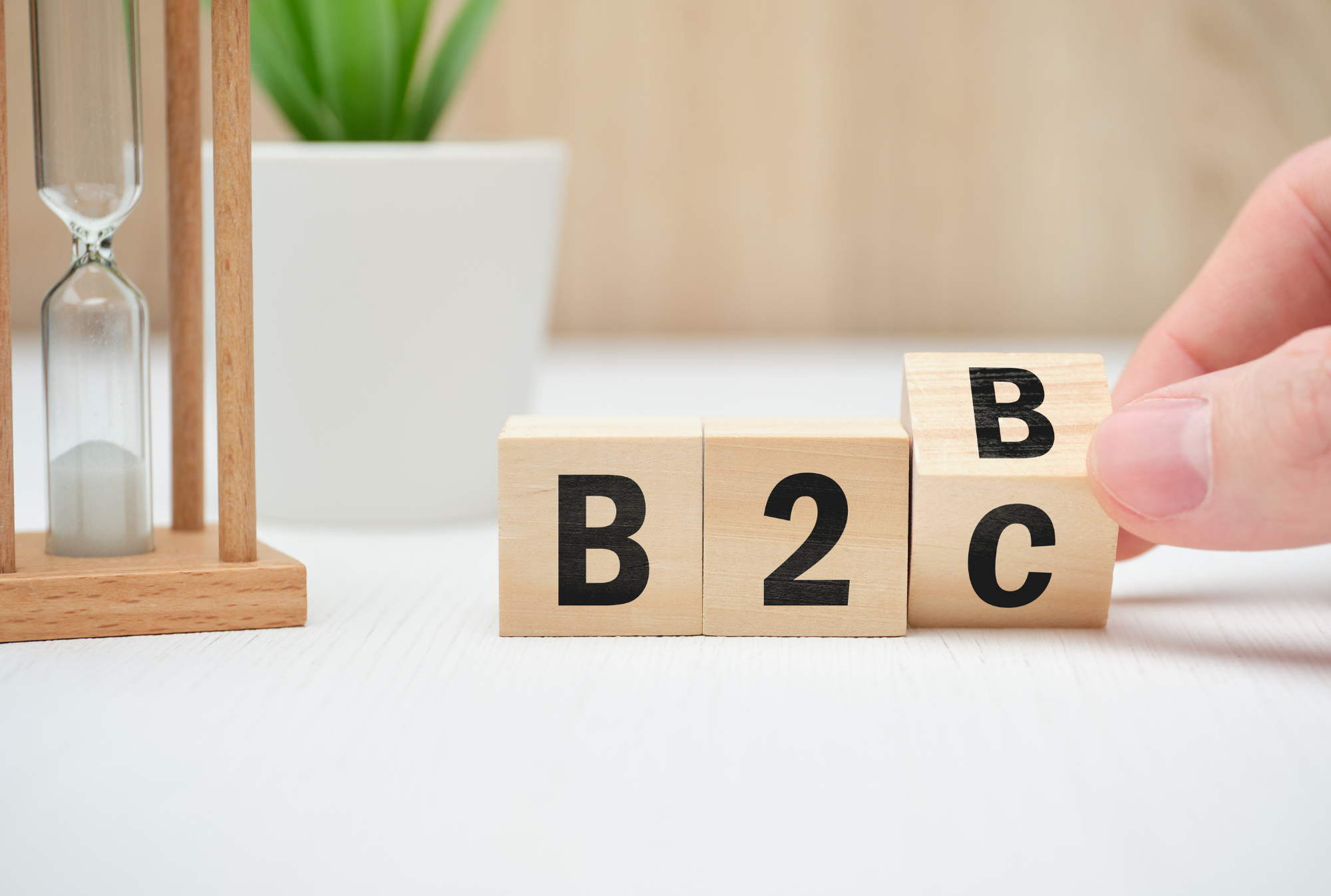What is B2B Sales vs B2C Sales?
If you’re stepping into the world of sales - or transitioning from selling to consumers to selling to businesses - understanding the difference between B2B sales and B2C sales is a great place to start. The shift requires a new approach, a new mindset, and some key strategies.
In this guide, we’ll break down what B2B sales actually means, how it differs from B2C, and why building genuine relationships through authenticity in sales is one of the most valuable skills you can develop.
What is B2B Sales?
Let’s begin with the basics. B2B stands for business-to-business. It’s when one business sells a product or service to another business, rather than directly to a consumer.
Here are some examples:
A software company selling HR software to a mid-sized company.
A logistics firm selling their services to an e-commerce brand.
A consultancy helping a startup scale operations.
By contrast, B2C (business-to-consumer) or DTC (direct-to-consumer) is all about selling to individuals - think of online shopping, subscription boxes, or booking a holiday online.
While B2C tends to be fast and transaction-based, B2B sales involve more people, more moving parts, and a longer path to the finish line.
Key Differences between B2B Sales & B2C Sales
Understanding these differences is B2B sales training 101 - a good place to start.
1. B2B Deals are Typically Larger in Value
B2B products or services usually come with a higher price tag.
The bigger the investment, the more consideration is needed before a decision is made.
Because the price tag is higher, you can afford to invest more time and resources into each sales opportunity.
2. The Solutions are often more Complex
In B2C, a product might be as simple as a pair of shoes or a meal kit.
In B2B, you might be offering software, consulting services, or custom solutions that require integration or internal change management.
This means you’ll need a deeper understanding of the client’s needs and processes, and how your product or solution will work within their organisation.
3. The Sales Cycle is Longer
While a consumer might decide to buy within minutes, B2B sales can take weeks, months, or longer
Good time management and consistent connection are essential.
4. You’re selling to Multiple People, not just One Person
B2B decisions are rarely made by a single buyer.
You’ll interact with champions, influencers, technical experts, managers, and finance teams.
Each stakeholder plays a unique role, and all of them need to be considered.
Why Authenticity Matters in B2B
When you’re working with a client over several months - or longer - people start to get a sense of who you are. That’s why authenticity in sales is so important.
It’s not about being slick or overly polished. It’s about being real, knowledgeable, and genuinely invested in helping the customer find the right solution.
Here’s what that looks like in practice:
You listen more than you talk
You ask good questions and care about the answers.
You’re honest about what your product can - and can’t - do.
You follow through on your promises, even the small ones.
This kind of authenticity builds trust, and in B2B sales, trust often makes the difference between a lost opportunity and a long-term partnership.
Tips for New B2B Sellers
If you’re starting out in B2B, here are a few tips that can help you build a strong foundation:
1. Get Curious
Spend time learning about your clients’ business challenges and what success looks like for them. The more curious you are, the more value you can offer.
2. Map the Stakeholders
Figure out early on who you need to talk to - and who might influence the decision behind the scenes. Not everyone has a formal title, but many people have informal power.
3. Stay Organised
Because the sales cycle is longer, it’s easy to lose track of where things stand. A good CRM (or even a well-kept spreadsheet) can make a huge difference.
4. Keep It Human
Even though you’re selling to a business, you’re still talking to people. Be approachable, stay respectful, and remember that everyone’s juggling competing priorities.
Wrapping Up: B2B vs. B2C – What You Need to Know
Let’s finish with a quick recap of the key differences between B2B Sales and B2C sales:
B2B sales is more of a marathon than a sprint. It’s about playing the long game - understanding people, solving problems, and building trust over time.
And that’s where authenticity in sales really shines.
By focusing on real connections, clear communication, and continuous learning, you can grow your business - one relationship at a time.
Want to keep learning? Check out our free resources and our B2B Sales Courses.



